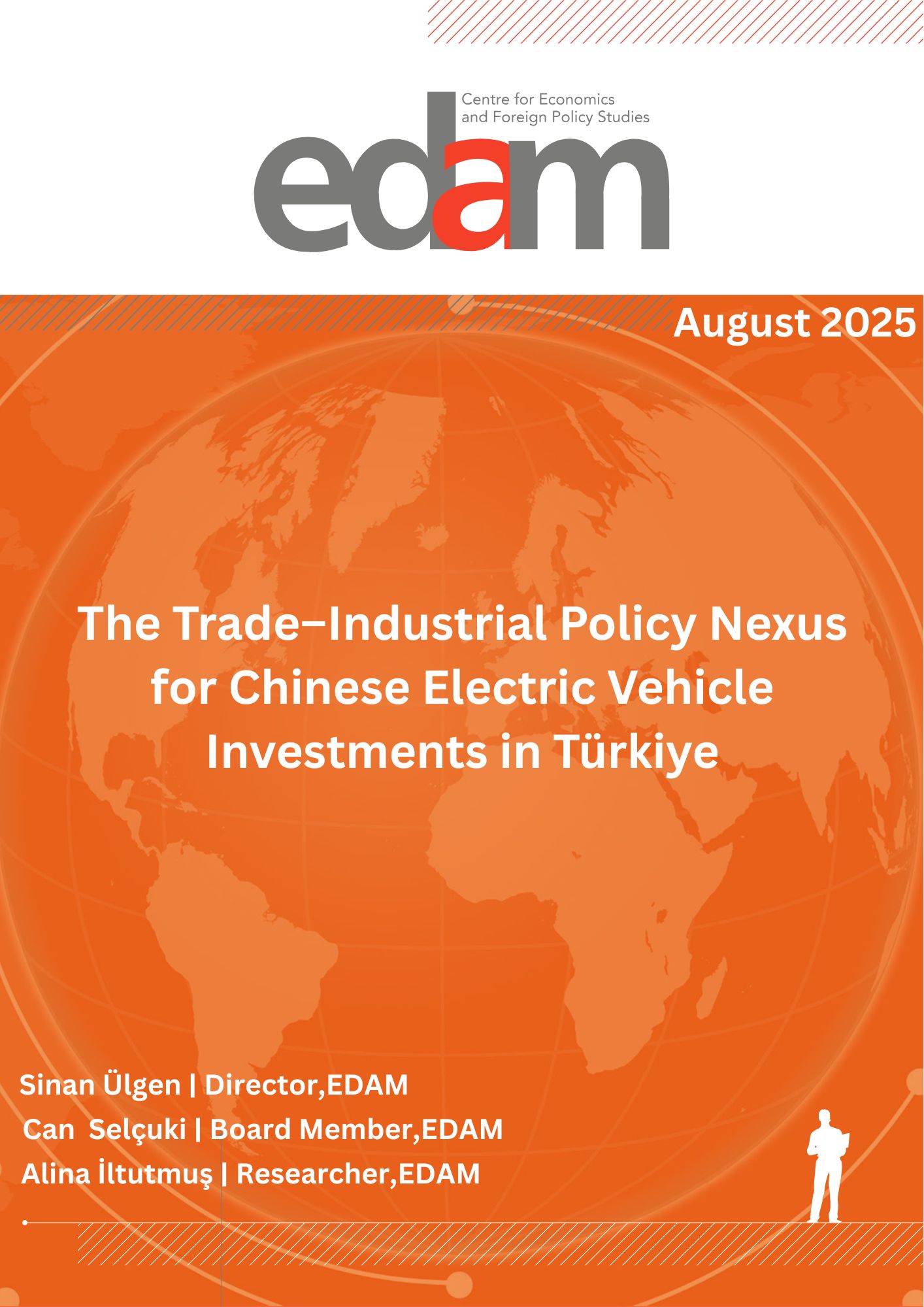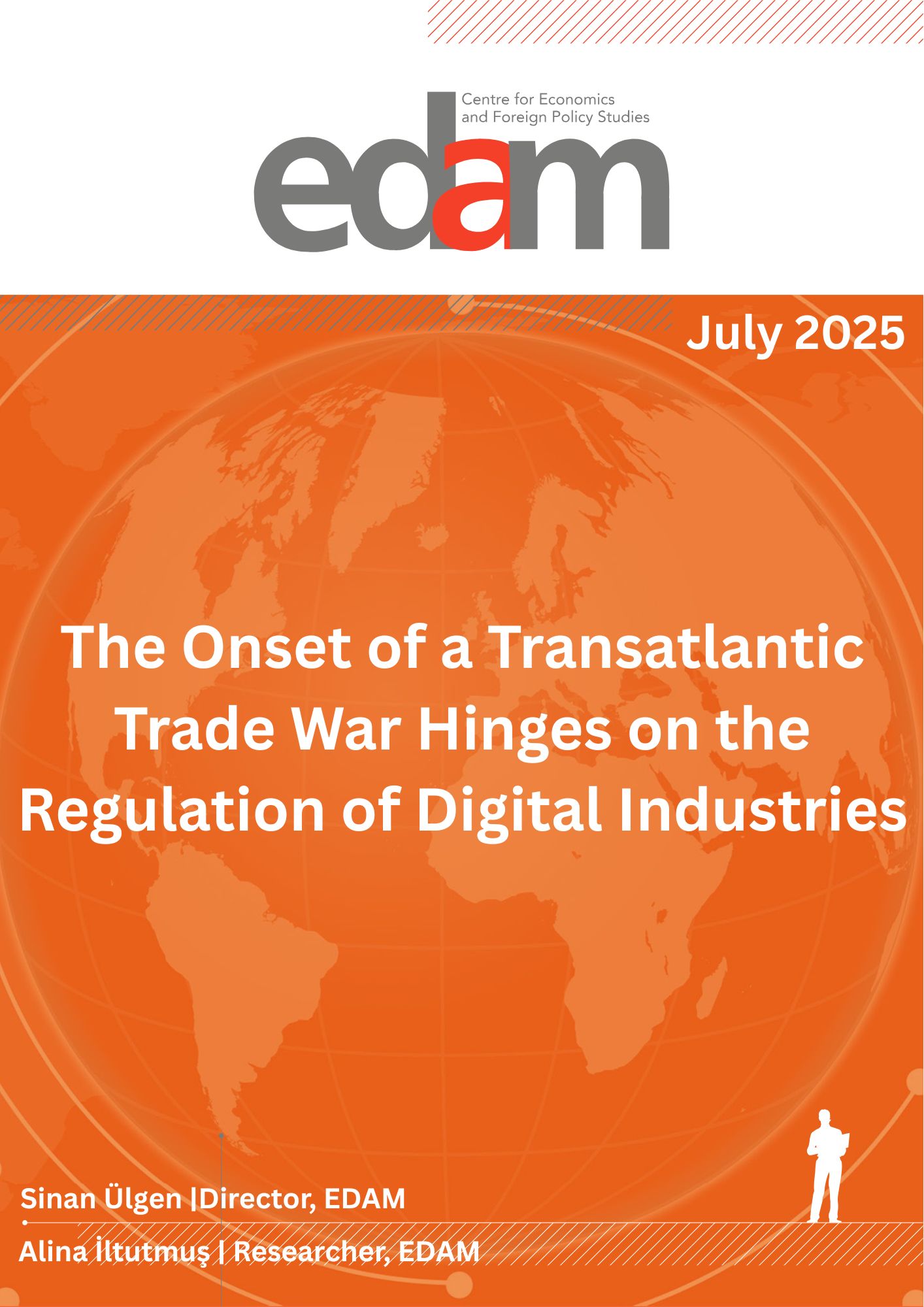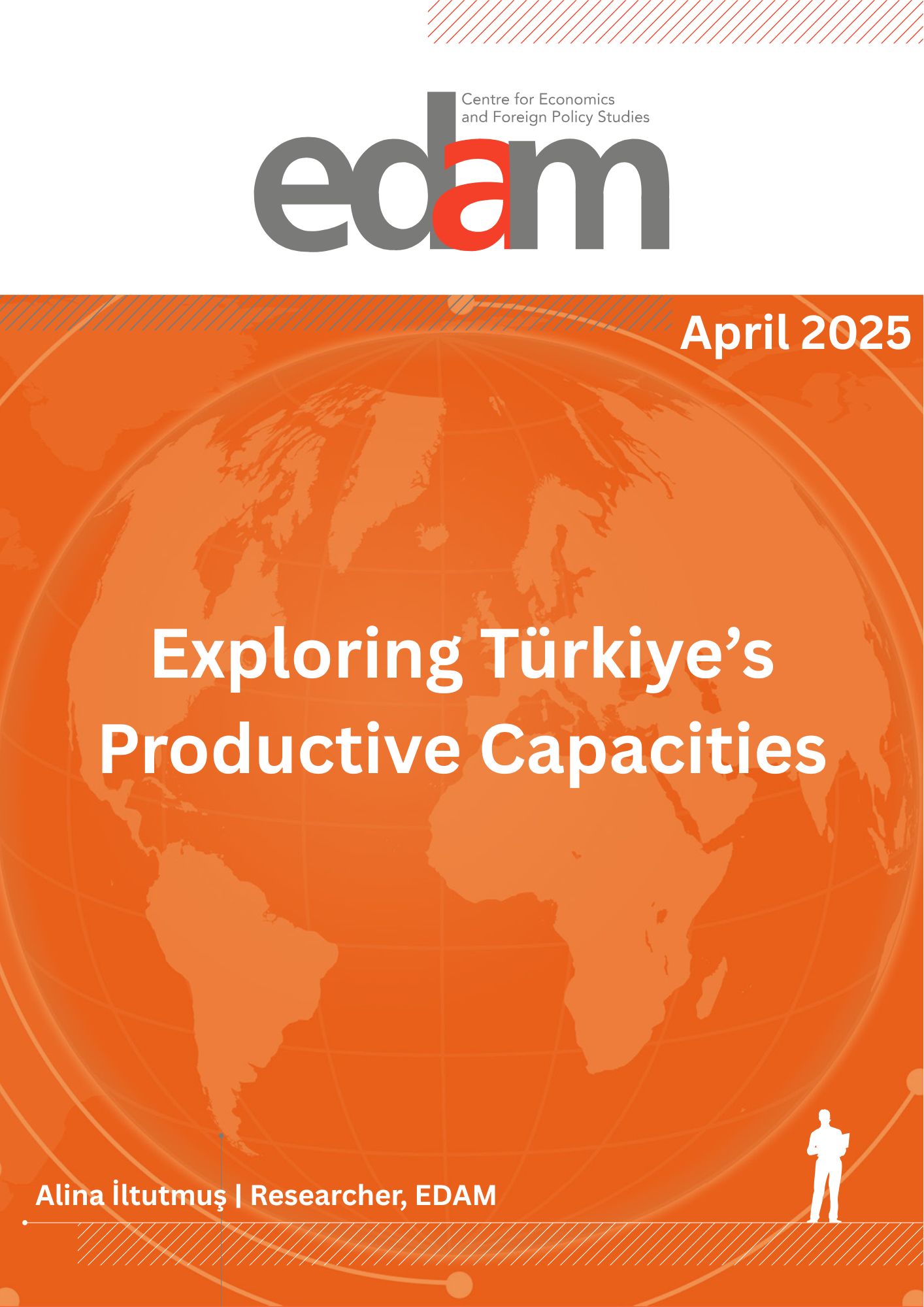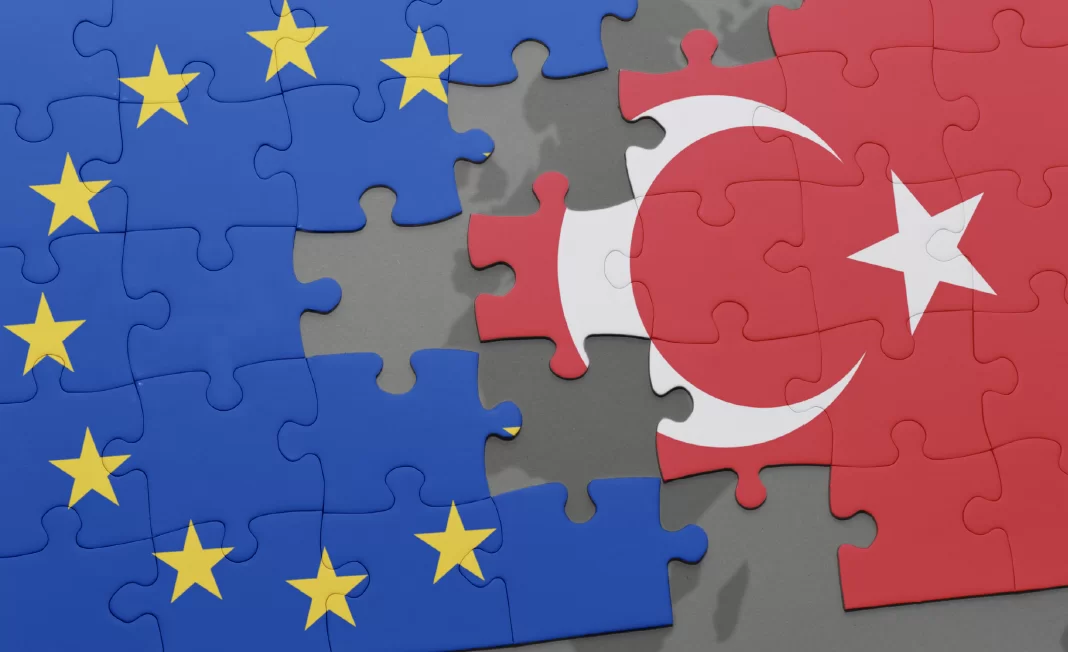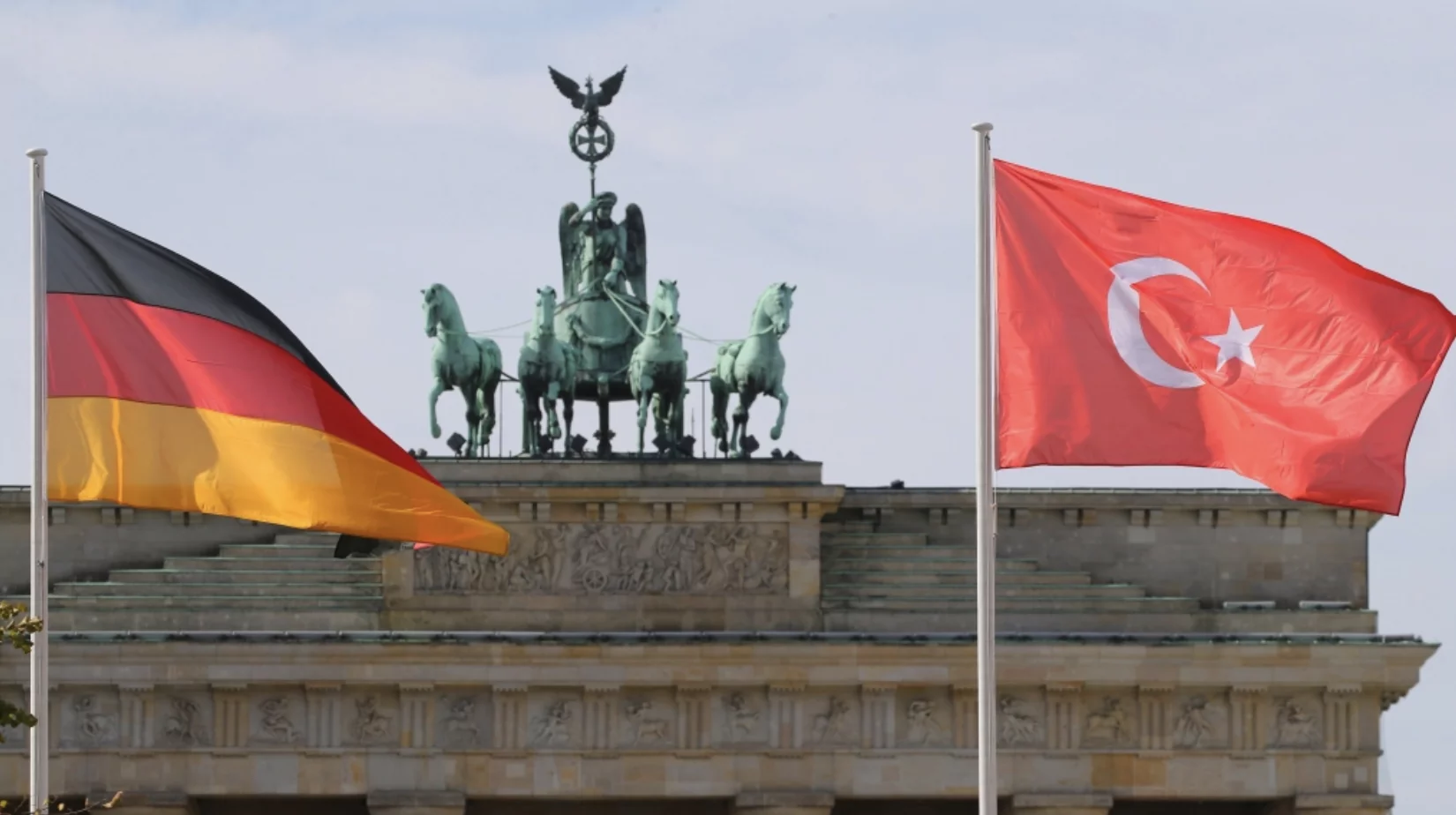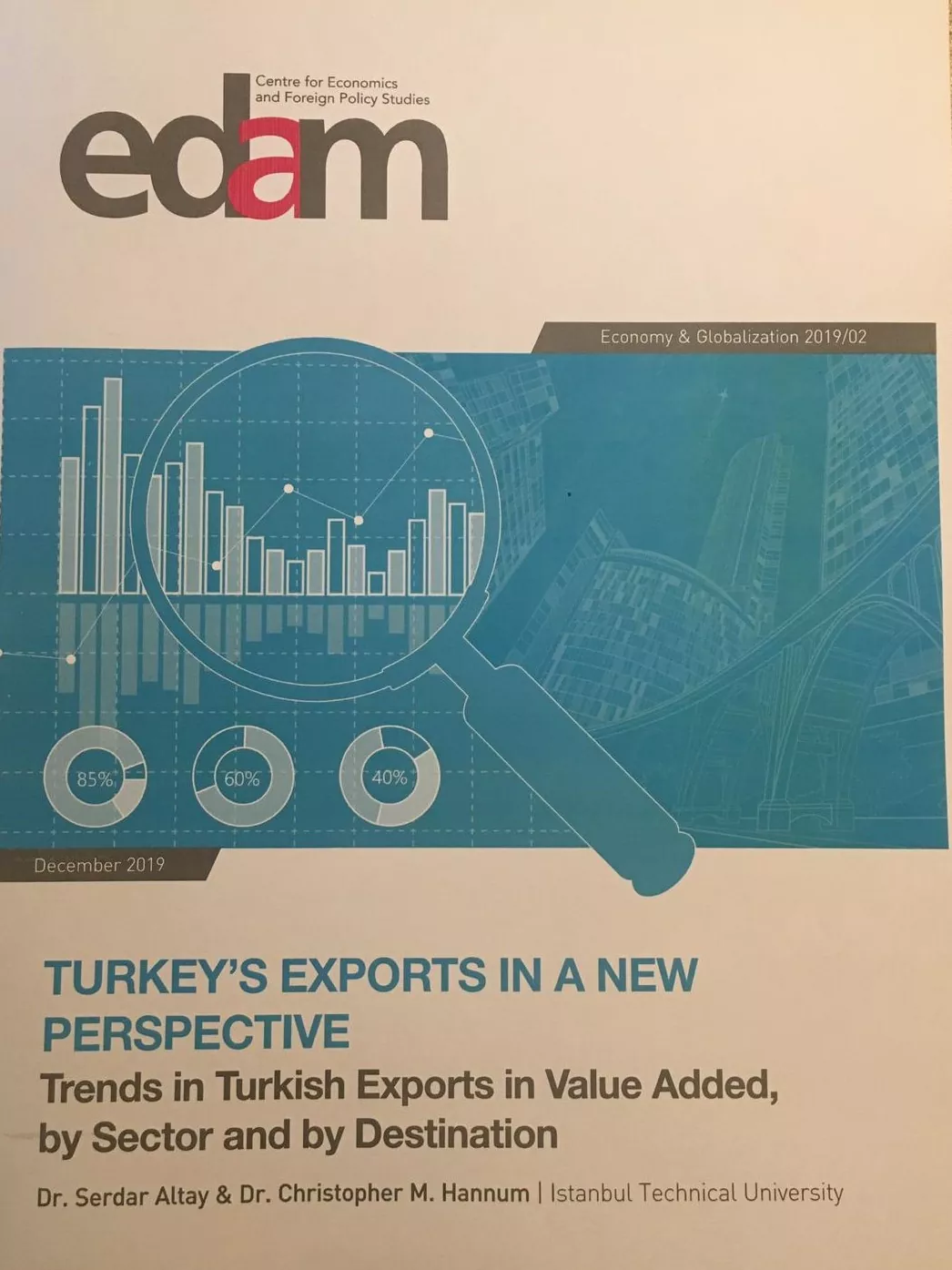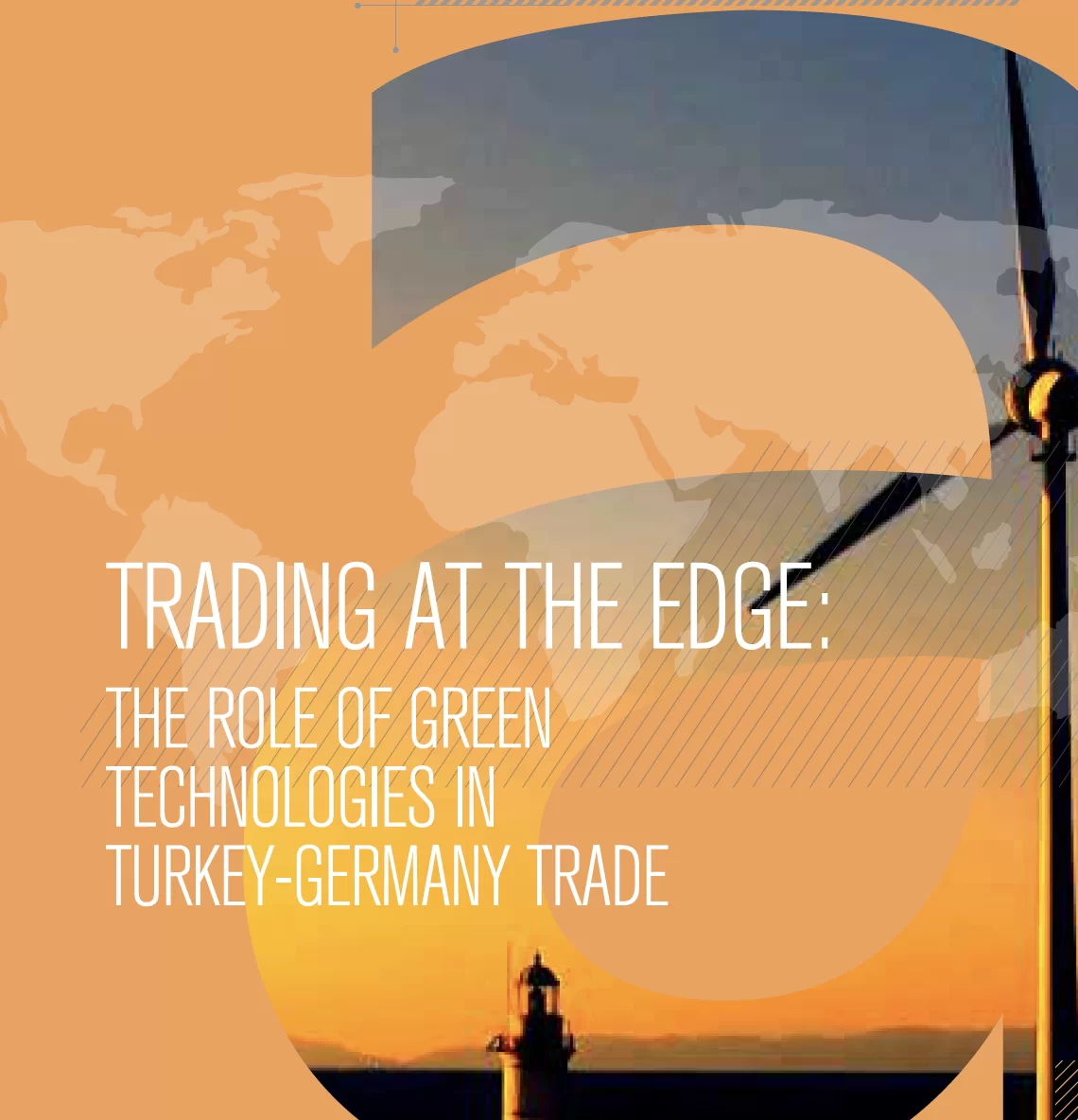
Trading at the Edge: The Role of Green Technologies in Turkey-Germany Trade
At the end of September 2021, Turkey announced that it will ratify the Paris Agreement which it had signed in 2016. Domestic and international developments, including the European green deal, makes it inevitable for Turkey to discuss its policy choices to converge to the green transformation process that is taking place globally.
This paper aims to evaluate Turkey’s potential in green economy from a trade perspective. In doing so we hope to have provided a new methodology for Turkey in measuring green economy. To our knowledge this has not been utilized elsewhere. Special attention is given to Germany which is the largest trading partner of Turkey in our definition of green products. 41 products that fell under the broad sectors of Renewable Energy and Green Infrastructure, Transport Technologies, and Green Friendly Construction were analyzed during the trade analysis.
Following the trade analysis, this paper presents two additional chapters to deepen the discussion on the Green Economy. First, it employs a recent methodology developed by Neave O’Clery, Muhammed Ali Yıldırım, and Ricardo Hausmann. These scientists have created a productive ecosystem map based on the Ricardian Comparative Advantage theory. With the help of the ecosystem map, this paper provides a group of products and their related HS codes that Turkey can have a comparative advantage to produce and export. Secondly, focusing on the clean technology startups’ contribution to green economy, this paper presents a snapshot of both Turkey’s and Germany’s green startup ecosystem and the potential for integration for the possible future endeavours.
Turkey’s green economy constitutes a growing part of its trade volume. Compared with total trade volume, the Compounded Annual Growth Rate – CAGR in the past decade of overall green economy exports is 5.5%, while Turkey’s CAGR of total exports is 3.5%. Likewise, the CAGR for green economy imports is 4.1%, and CAGR of total imports is 1.2%. Based on the data from last ten years, the growth rate of the green economy is accelerating faster than that of total trade and is open to be improved for future opportunities.
The analysis reveals that the three different sectors of the green economy (renewables and green infrastructure, transport technologies, green-friendly construction) have a visible impact on Turkey’s economy and trade relations. Especially, Germany has a large share in comparison to other trade partners of Turkey. As a result of our analysis, Germany ranked 1st for both exports and imports of renewables and green infrastructure. In the green transport technologies sector, Germany ranked 1st in exports and 2nd in imports which China surpassed. Finally, in green construction, Germany ranked 3rd in exports after Iraq and Israel respectively and ranked 1st in imports.
Germany is the market for 15.5% of Turkey’s green economy exports, while accounts for 20.4% of total green economy imports. Currently, Germany ranks 1st the export market for $567 million of Turkish green economy goods. On the import side, Germany ranks 2nd with overall value of $1.2 billion in the same category. Germany ranks 1st among the EU members in terms of Turkey’s green economy trade values for both exports and imports.
The potential for additional trade and investments is also reflected in the cleantech startups of both Turkey and Germany. Both countries’ green economy stands to benefit greatly by the dynamism that is provided by cleantech startups. As is the case for general startup ecosystem, cultural ties and a long history of doing business together provides a very fertile ground for bringing together the cleantech startup ecosystem of each country.
